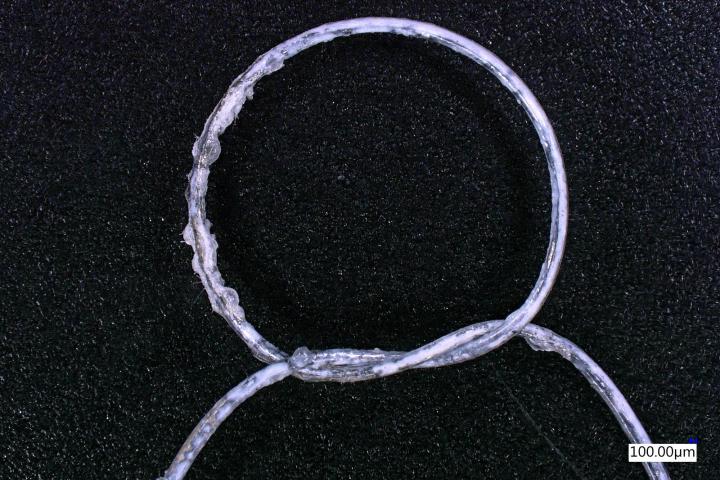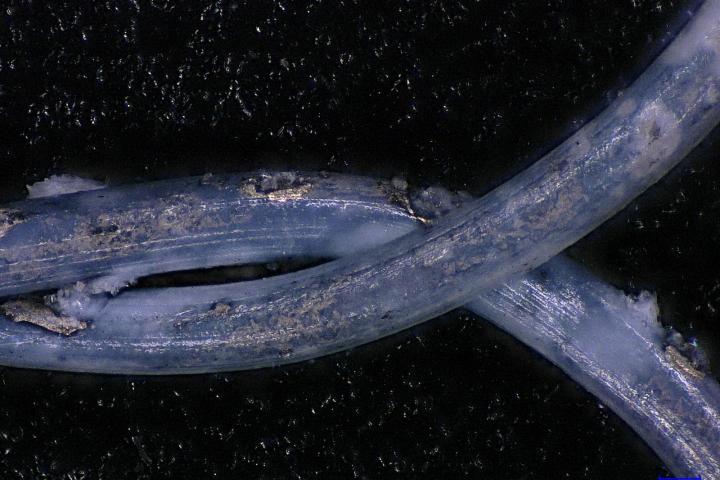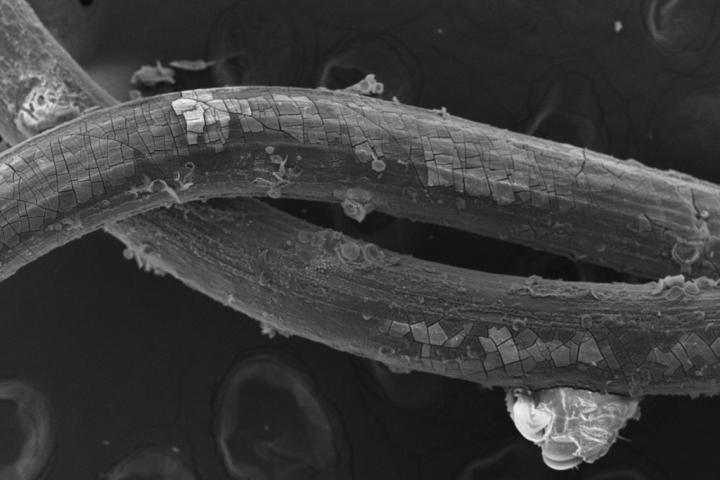
Long-term chest pain after heart and lung surgery is one manifestation of intolerance to nickel, which is found in steel wire. These are used when it is necessary to cut the sternum and then fix the halves back together. For this purpose, scientists from the FJFI, the ÚSHM and the FZÚ have developed a specially modified magnesium wire coated with a biodegradable polymer that fully dissolves in the body. Due to the composition of the implant, which is natural to the human body, there is no adverse reaction and therefore no chronic pain. The need to remove the wire can also be avoided, which would be a great advantage, especially in paediatric patients. The project was a finalist in the 2nd national Transfera Technology Day competition.
On behalf of FJFI, Ing. Karel Tesař, a PhD student of the Department of Materials, participates in the research. "Currently, in cooperation with the General University Hospital in Prague, we are evaluating the first implantations performed on the sternum of pigs. The first results look very promising. In parallel to this, we are trying to develop new methodologies for dynamic testing in a simulated body environment, which would reduce the need to use live animals at least partially", says Karel Tesař.
In ÚSMH, the research is carried out by doc. Ing. Karel Balík, CSc., who together with his team has developed a device to coat a flexible magnesium wire with a special polymer material so that it has the required properties and can be used in surgery. This is because if the implant were made only of magnesium, it would dissolve in the body before the bone had set.
In addition, the 1st Faculty of Medicine of Charles University, the Biomedical Centre of the Faculty of Medicine of Charles University in Pilsen, the Institute of Physiology of the CAS, and the Institute of Animal Physiology and Genetics of the CAS also participate in the research.
The results of the project reached the finals of the 2nd national competition Transfera Technology Day. It is organized by the National Platform Transfera.cz, which advocates the interests of the transfer community in the Czech Republic with the aim of strengthening and developing activities in the field of technology and knowledge transfer. The aim of the event is to link business and science in order to obtain feedback on the commercial readiness of projects and, in the future, get funding for promising scientific projects.
Photo, source: Faculty of Nuclear and Physical Engineering of Czech Technical University in Prague

